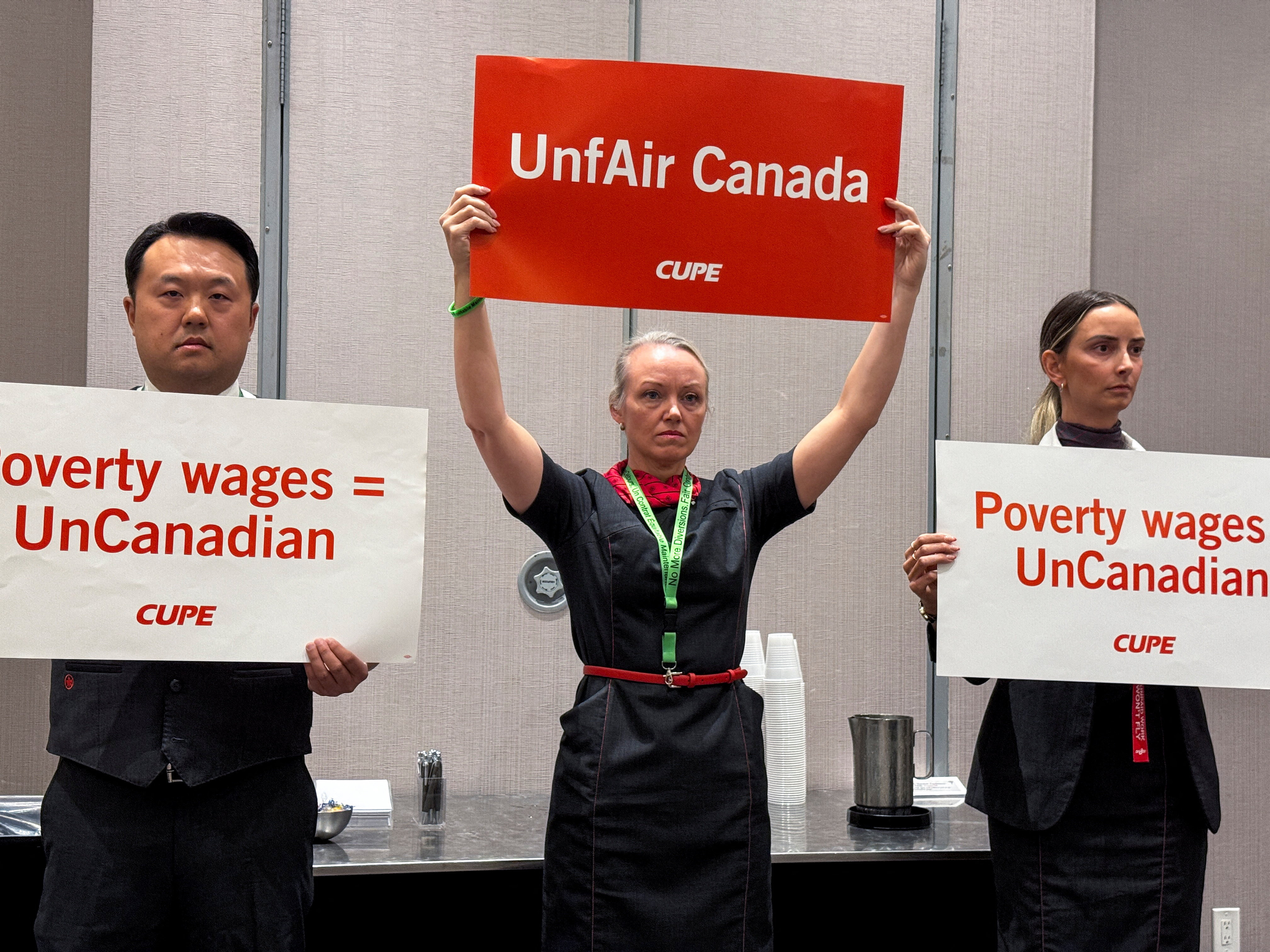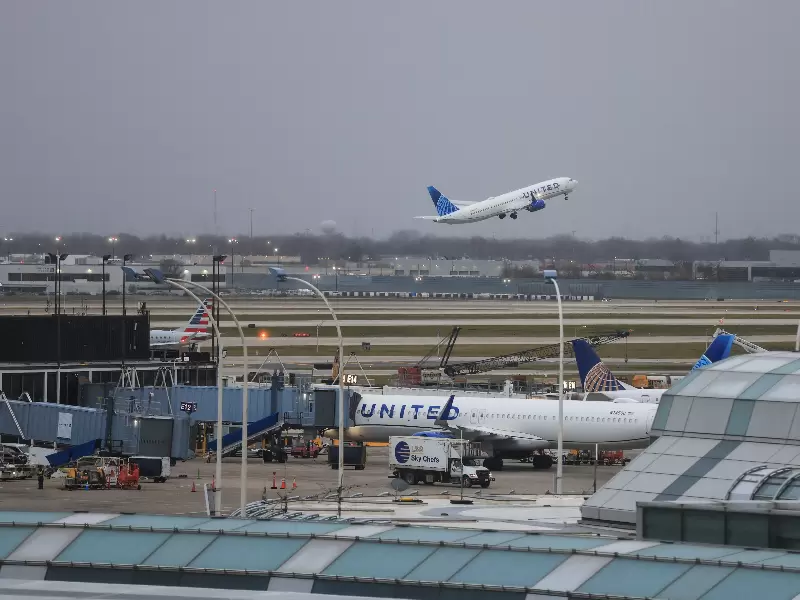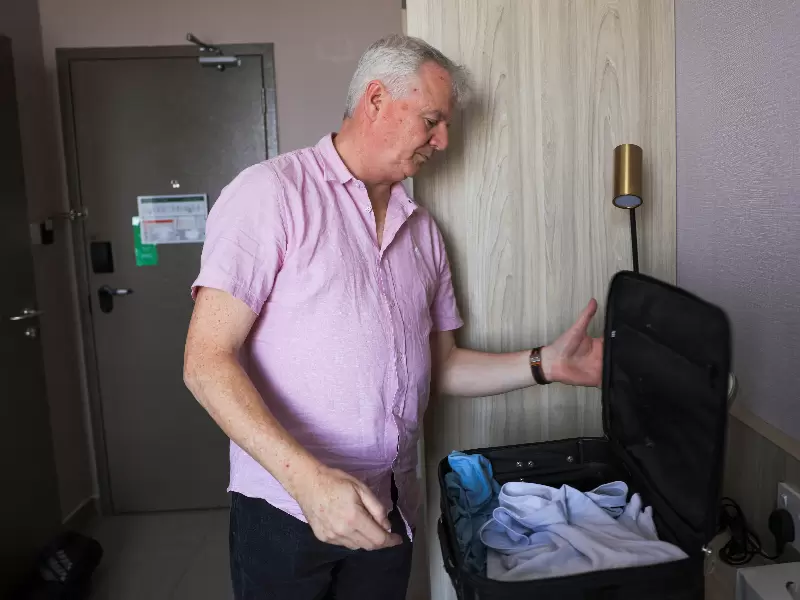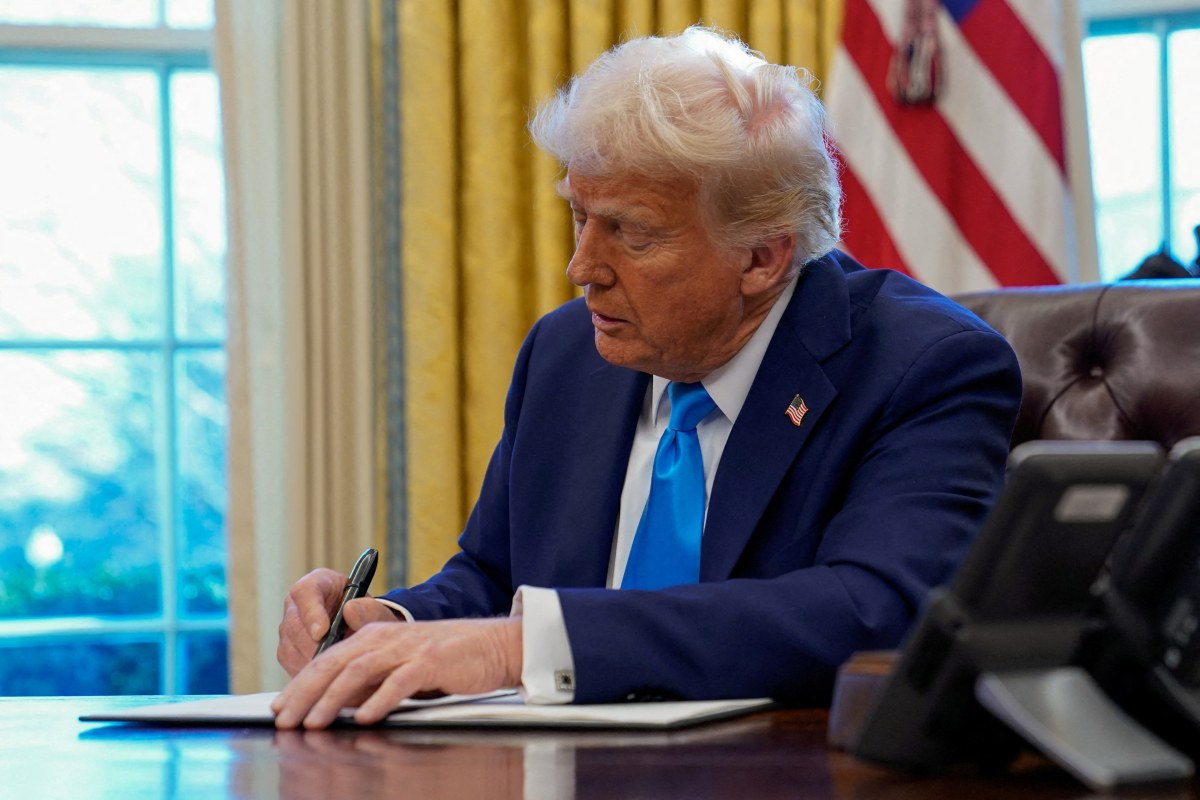Air Canada, flight attendants deadlocked with strike looming
Air Canada faces looming strike by 10,000 flight attendants over pay and unpaid work, threatening 100,000 passengers and summer travel.
 Union activists hold placards, as they interrupt a press conference by Air Canada executives, ahead of a potential strike by Air Canada flight attendants, at a hotel in Toronto, Ontario, Canada, August 14, 2025. / REUTERS/Kyaw Soe Oo/File Photo
Union activists hold placards, as they interrupt a press conference by Air Canada executives, ahead of a potential strike by Air Canada flight attendants, at a hotel in Toronto, Ontario, Canada, August 14, 2025. / REUTERS/Kyaw Soe Oo/File Photo
The prospect of a systemwide work stoppage by Air Canada's unionized flight attendants loomed large on Aug. 15 with a strike deadline just hours away, despite a government plea for both sides to return to the bargaining table.
Canada's largest carrier has said it expects to cancel 500 flights by the end of the day, ahead of a threatened strike just before 1:00 a.m. ET on Aug. 16, leaving some 100,000 passengers to find travel alternatives.
The union representing Air Canada's 10,000 flight attendants urged the minority Liberal government of Prime Minister Mark Carney not to agree to the carrier's request to impose binding arbitration on both sides.
The union said imposing arbitration would stop the first strike by Air Canada flight attendants since 1985, after contract talks between the two sides stalled over demands for higher wages and compensation for unpaid work.
"The mere prospect of ministerial intervention has had a chilling effect on Air Canada's obligation to bargain in good faith," said the Canadian Union of Public Employees.
Patty Hajdu, Canada's Minister of Jobs and Families, urged the two sides to work with federal mediators.
"Right now, the only focus should be on getting a deal,” she said.
FlightAware data showed Air Canada had cancelled 174 flights as of 1:00 p.m. ET on Aug. 15 (1700 GMT). A further 94 were delayed.
At Toronto's Pearson International Airport, the world's hardest hit on Friday for cancellations according to FlightAware, Air Canada passengers lined up in front of a desk to ask workers for information about flights.
A strike would hit Canada's tourism sector during the height of the summer travel season.
Recording studio owner Robyn Flynn, 38, told Reuters that her Aug. 15 afternoon flight from St. John's in the province of Newfoundland and Labrador to Montreal had been delayed twice. Despite the inconvenience, she said she backed the attendants.
"They deserve a salary increase ...and if our flight gets cancelled, I 100 percent blame Air Canada, not the flight attendants," said Flynn, travelling with her three-year-old daughter.
The Canada Labour Code gives Hajdu the right to ask the country's Industrial Relations Board to impose binding arbitration in the interests of protecting the economy.
Although the board is independent, it routinely agrees to request for arbitration once it has studied the matter, a process that can take a few days.
The Toronto region Board of Trade called on Ottawa to step in, saying a strike would hurt Canada's global reputation.
Under Justin Trudeau, Carney's predecessor, the government intervened quickly last year to head off rail and dock strikes that threatened to cripple the economy.
"(Ottawa) might decide to use that, but it's not as pressing an economic issue for the country as when the railway or the ports were on strike," said Rafael Gomez, director of the University of Toronto's Centre for Industrial Relations and Human Resources. "The stakes are not as fraught."
In a note, TD Cowen analyst Tom Fitzgerald estimated a three-day strike could cost the airline C$300 million in EBITDA, referring to earnings before interest, depreciation, taxes and amortization.
Unpaid work
The dispute hinges on the way airlines compensate flight attendants. Most have traditionally paid them only when planes are in motion.
But in their latest contract negotiations, flight attendants in both Canada and the United States have sought compensation for hours worked, including for tasks such as boarding passengers.
New labor agreements at American Airlines and Alaska Airlines legally require carriers to start the clock for paying flight attendants when passengers are boarding. American's flight attendants are now also compensated for some hours between flights. United Airlines' cabin crews, who voted down a tentative contract deal last month, also want a similar provision.
Air Canada and its low-cost affiliate Air Canada Rouge normally carry about 130,000 customers a day. Air Canada is also the non-U.S. carrier with the largest number of flights to the U.S., despite recent cutbacks in travel there from Canada due to trade tensions.
ADVERTISEMENT
ADVERTISEMENT
E Paper
Video




 Reuters
Reuters





.JPG)







Comments
Start the conversation
Become a member of New India Abroad to start commenting.
Sign Up Now
Already have an account? Login